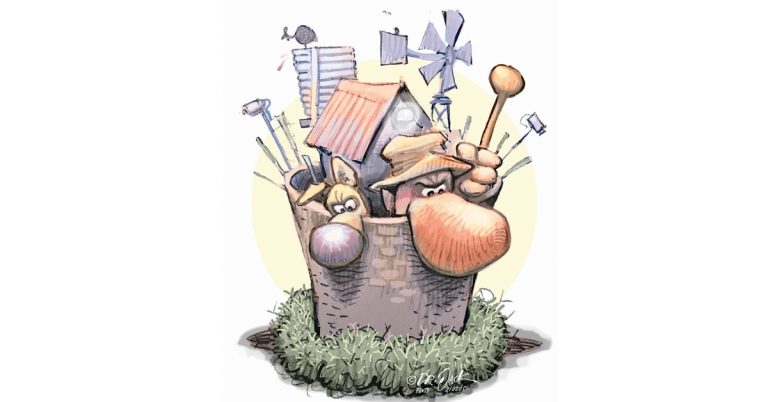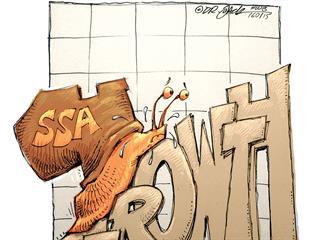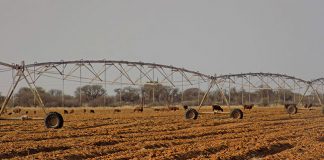
The perception exists that rural safety and the National Rural Safety Strategy are applicable only to farms, farmworkers and farm owners.
This leads to another perception: that farmers and their workers, together with the South African Police Service (SAPS), are solely responsible for security on farms. These ideas are far removed from reality.
To address crime successfully in rural areas, one needs to understand the complexity of the environment, to respond when it happens, and to prevent future incidents. Everyone wants to live in a stable and secure environment, and in the agriculture sector this leads to food security.
Agri SA believes that the only way this can be achieved is to focus resources such as money, social programmes and service delivery on addressing the community’s socio-economic needs and conditions where required.
This is currently not possible, however, due to the perception, right or wrong, that due to failures in the policing and justice systems, criminals have a good chance of getting away with their crimes.
Apart from the sense of lawlessness that this creates, industries such as agriculture also suffer huge economic losses when crime goes unpunished. Research carried out by Agri SA and the University of South Africa showed that the direct cost of farm-related crime in 2017 was R2,28 billion, while the indirect cost amounted to R5,45 billion.
This means that the total economic impact of these crimes was R7,73 billion.
A HOLISTIC RESPONSE
Effectively addressing the issue of rural crime, and farm-related crime in particular, requires involvement from more than just the farming community and the SAPS. The entire community and all spheres of government, including municipalities, provincial government structures and national departments – including agriculture, environmental affairs and social development – have to work together.
Other organisations that have to be included are religious organisations, private security companies, farm watches and local businesses. A typical example of how complex it can be is best illustrated by means of a stock theft incident.
A farmworker discovers a carcass or evidence of the crime. He or she then informs the farmer, who informs the police. Either the police or the farmer then inform the stock theft unit. If the incident is a recent occurrence, the police tracker unit is informed and the farm watch is activated. Private security companies also need to be involved.
The SAPS forensic team is then required to lift the spoor and possibly identify other forensic evidence. The detectives are informed if the case leads to evidence that can be followed up by the detective branch. SAPS’ crime intelligence is then supposed to contact its resources in the community and also inform its colleagues of places where the criminals might try to sell the stock.
The local prosecutor has to be informed, either by crime intelligence, the detectives or farmers’ representatives from the area, on the effect that stock theft is having on the economy at the local, provincial and national level in order to prepare the case for prosecuting.
The local municipality is obliged to assist via its law enforcement officials, who are required to enforce the by-law that no unregulated slaughtering of animals takes place inside their area of jurisdiction.
Their physical presence and movement in the area to prevent these crimes or assist the local police in the follow-up operation should also help convince criminals that that area is not good for business.
The local business community needs to inform its members not to buy stock or goods that they suspect might have been stolen. The Red Meat Producers’ Organisation should ensure that farmers are knowledgeable on how
to brand their livestock so that they can be properly identified in case they are recovered from thieves. It is important that schoolchildren be educated on how important a sound agricultural environment is to the local economy by providing jobs and food, and how crime can have highly negative effects.
Churches and religious organisations have a responsibility to educate their members, influence behaviour, and identify vulnerable households for intervention by the Department of Social Development, NGOs and municipalities.
Telecommunications providers also have a part to play by keeping their networks in working order so that people can communicate reliably during incidences of crime. Areas with poor connectivity need to be identified and upgraded to ensure a more secure environment.
The holistic response described above requires smooth coordination of activities and an integrated and joint approach by all role players at the national, provincial, district and local level.
COLLECTIVE RESPONSIBILITY
The revised National Rural Safety Strategy, compiled from input received from Agri SA and others, tries to address this situation. The main challenge here is to break down resistance and change people’s mentality.
We need to stop working in silos where individuals and organisations focus only on protecting their own interests. We have to take individual and collective responsibility and ownership to ensure that rural security becomes a reality for ourselves, our neighbours and the broader community.
Importantly, after role players have accepted their responsibilities, there should be severe consequences when requirements are not executed as instructed. Trust needs to be built by means of frequent communication to ensure the complete involvement and co-operation of all role players identified in the National Rural Safety Strategy.
In addition, professional coordination is required to execute the strategy by means of an integrated and joint approach, controlled by a dedicated nodal structure manned by competent and knowledgeable people committed to serving the community in order to reach obtainable objectives.
Finally, these efforts must be supported by an effective criminal justice system that can serve as a deterrent against crime. Efforts to address rural crime will come to naught if there are no consequences for committing crime.
The views expressed in our weekly opinion piece do not necessarily reflect those of Farmer’s Weekly.
Email Uys van der Westhuijzen at [email protected]













